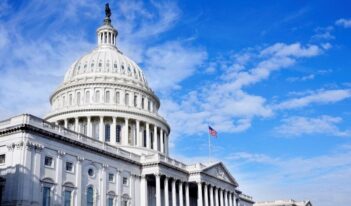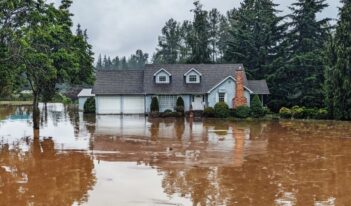
Research shows that linking climate issues with other legislative priorities increases congressional support.
The 2024 elections have raised questions about the future direction of climate policy in the United States. Many are concerned that legislative progress on climate issues will stall in the 119th U.S. Congress. Worse still, with Republicans in control of all three branches of government, parts of the Inflation Reduction Act of 2022 (IRA), the most important federal climate initiative to date, might get repealed.
On the face of it, climate issues have not been a top legislative priority for either party. After all, Congress has passed very few climate bills in the last 20 years. Because climate change is now at the center of today’s culture wars, even the IRA was not labeled as climate legislation.
Alternatively, one might argue that Congress has been interested in climate issues. This is reflected in substantial legislative actions related to climate issues, in terms of votes on bills, resolutions, and amendments. In a recent paper, we explore how members of the U.S. House of Representatives voted on these legislative actions. Our intuition was that because climate issues might not get legislative traction on their own, linking them with other issues might influence how legislators vote on climate-focused legislative actions.
A vast literature investigates whether legislators cast their votes carefully because these votes can come to haunt or help them in their reelections. Thus, legislative actions provide members of Congress with the opportunity to signal their support for specific policy issues.
Representatives might want to send a signal of their support, but what is the guarantee that citizens will be able to receive and correctly interpret this signal? After all, citizens tend to lack the necessary information to assess legislators’ voting records. This is where the role of interest groups as information aggregators becomes important. To solve this information problem for citizens, interest groups such as the National Rifle Association, Americans for Democratic Action, Americans for Constitutional Action, U.S. Chamber of Commerce, and National Farmers Union publish scores or ratings, summarizing Representatives’ votes on specific issues.
For environmental issues, the League of Conservation Voters entered the scoring game in 1972 by rating Representatives on their environmental votes. We examine the period from 2007 to 2022, during which the League of Conservation Voters scored 406 votes, 77 of which focused on climate change. Although only a few of those votes led to enacted laws, they allowed legislators to signal their commitment to climate issues.
What might motivate Representatives to signal their support for climate action or hide their support behind other issues? We explore the role of issue linkages in this regard. The intuition is that linking climate change with other policy issues might allow legislators to construct a stronger coalition or hide behind another issue, should climate be unpopular with their constituents.
The House of Representatives provides an excellent opportunity to explore issue linkage as a legislative tactic, as Representatives serve a two-year term and are permanently in campaign mode. This them highly responsive to anticipated reactions to their votes in their districts.
To better understand this phenomenon, we explore the role of issue linkage in U.S. climate politics. We focus on four issues, which we selected because they tend to have different levels of visibility and local impact: air pollution, water pollution, environmental justice, and transportation.
Our regression analysis of the votes of 435 Representatives on 77 climate-focused legislative actions cast between 2007 and 2022 suggests that all else equal, standalone climate issues diminish legislative support, although they receive more support among Democrats. Linking climate-focused legislative actions with clean air, environmental justice, and transportation issues attracts more votes. However, issue linkages can also backfire—climate-focused legislative actions linked with water issues diminished legislative support.
What explains these divergent results? Scholars note that legislators tend to support visible issues that voters are more likely to notice. Air pollution is highly visible—smokestacks are visible from long distances, and many people experience vehicle exhaust every day. Water pollution is less visible, although, after the water crisis in Flint, Michigan, water pollution seems to be becoming more important. This is why linking climate issues with air pollution issues helps climate policy, but linking climate issues with water pollution issues hurts climate-focused legislative actions.
Transportation creates local benefits and allows legislators to show that they have brought pork home. Environmental justice has become an important part of the environmental policy landscape. Thus, it is no surprise that climate change issues receive legislative traction when they are linked to transportation and environmental justice issues.
For the 119th Congress, we offer suggestions to climate advocates—link climate action with other visible issues that create local benefits. For example, one way to protect the IRA would be to play down its climate dimension and play up its local economic impact. Indeed, in August 2024, 18 Republican Representatives wrote to Speaker Mike Johnson (R-La.), asking him to protect clean energy credits provided in the IRA, linking it to innovation and local economic impact. This provides an important insight for those hoping the 119th Congress can protect the legislative gains, no matter how limited, made in previous years on climate issues.






